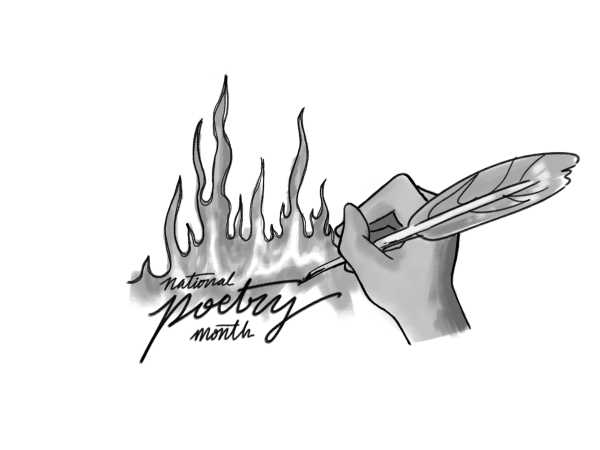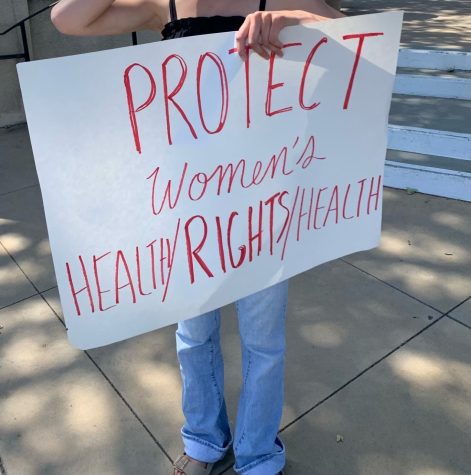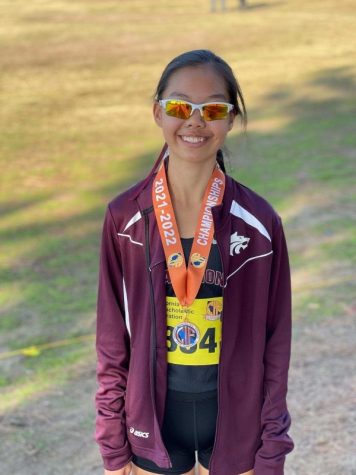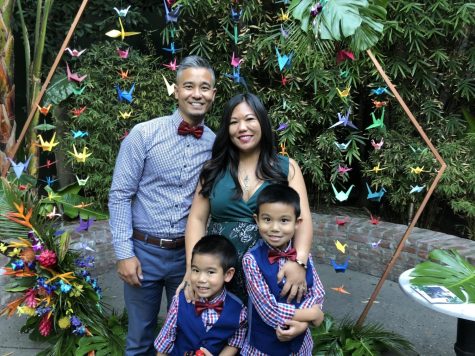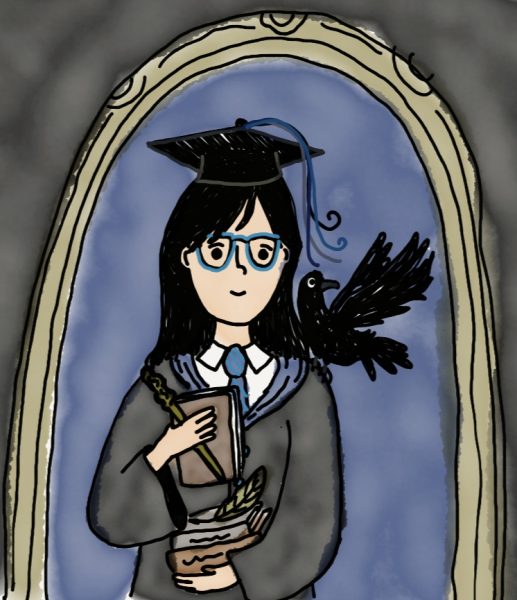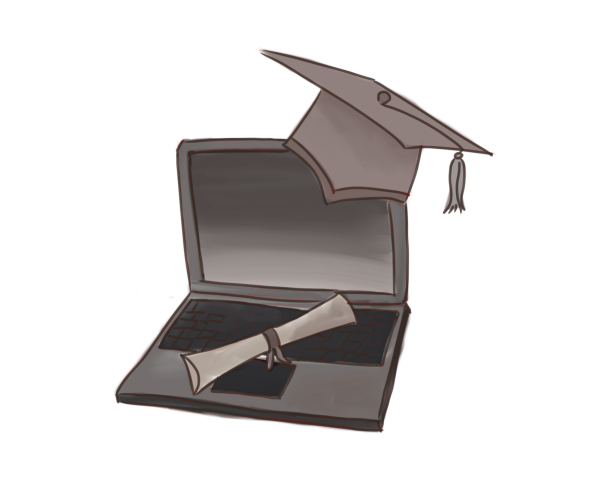COVID-19 pandemic shines a spotlight on what’s really wrong with American society
A pandemic is a universal phenomenon, not a universal experience. This distinction may seem obvious; naturally, different peoples’ circumstances affect their personal experiences in such an unprecedented situation. As a historic, devastating virus sweeps the world, no two people are feeling its effects in quite the same way. But that is clear to see… right?
Apparently, not quite.
In America in particular, a lackluster, paranoid, and ununited response to the coronavirus has highlighted one huge national downfall: lack of real empathy or awareness. The reality many people are refusing to face is that now, more than ever, people are in dire need of resources, understanding, and support, especially as some situations are much more severe and unsafe than others. This is the case on an individual level yet also rings true when looking further to overall trends. Some American groups and communities are much more impacted than others by this deadly crisis. In the wake of a disaster that puts unique pressure on all American institutions and systems, certain inequities are more transparent than they have ever been. With a spotlight shining on these systemic failings, it is time to collectivize and perhaps finally go about progress and reparations. And yet, both conversation and action regarding the coronavirus seems to overlook the fact.
At CHS, for example, administration recognized that some students did not have access to the needed technology as school transitioned online. They took measures to overcome this gap, providing iPads and free internet service. Along with action to secure free meals for students, these efforts are valued. It is incredibly fortunate that the district can afford to do so, especially as many others might not.
But the school has not accounted for everything.
In passing conversations with others (especially those arguing for mandatory grading), I have heard it implied that now that students’ needs have been met, they should pick up on schoolwork where they left off. This assumption — that access to food and technology are the two boxes to be checked, rather than admittedly crucial parts of a larger issue — is a gross oversimplification. The mentality makes a joke of the other, less tangible and more complex needs of students. What of those who relied on teachers or other school staff as supportive adult figures they saw daily, and now, not at all? What of the grieving, potentially dealing with the losses of loved ones to this disease? What of those too preoccupied with a global death toll of over 218,000, which grows with every second, to focus on a Zoom call? What of the family members trapped in abusive households, now with no escape at all from potentially dangerous situations? School might just be the last thing on their minds.
Knowing this, modern times call for the utmost kindness, the utmost empathy, and the utmost support for the individuals and groups most affected amidst this crisis. They also call for an awareness that many are bizarelly lacking at the moment. To treat this pandemic as a survival competition is simply selfish. If you find your priority to be rushing to a store and buying up all of a certain product so that you can horde it in security, wake up. Your enemy is not the woman down the aisle, it is your greed and your ignorance. Sometimes, the collective need must come before your individual desires. And by sometimes I mean now.
With many states implementing stay-at-home orders, it is as if we are forgetting the 567,000 people who, according to a 2019 estimate made by the U.S. Department of Housing and Urban Development, have no home to stay at any point in time. Homeless Americans are particularly vulnerable to the virus, and the toll is devastating. Homeless shelters throughout the country are overcrowded and overrun by the disease. In San Francisco’s largest homeless shelter alone, around 100 homeless and 10 staffers tested positive. Earlier this month, out of 408 people tested at a single Boston shelter, 147 tested positive for the virus. Shelters, unlike nursing homes which are additional vulnerable hotspots, house hundreds of potentially diseased individuals without separate rooms or private space, leading to many health concerns. In light of this danger, many homeless shelters have stopped admitting new clients. But it is unclear if the alternative — unregulated homeless encampments without access to testing or much sanitization — is any better than a highly concentrated shelter. The extent of America’s homeless crisis is now clearer to see than ever, and ill-protected homeless communities are bearing the brunt of yet another broken American system.
Worst of all, they are not alone.
Preliminary data confirms that minority communities are the ones being hit hardest by the virus. African Americans are disproportionately affected by the coronavirus, as a Washington Post analysis finds that U.S. counties that are majority-black have three times the rate of infections and almost six times the rate of deaths white-majority counties suffer from. The pattern is undeniable. In Milwaukee County, though African Americans make up 26 percent of the population, they account for about 70 percent of deaths. In Louisiana, though African Americans make up just 32 percent of the state’s population, they also account for 70 percent of deaths.
President Donald Trump spoke up on the issue for the first time in early April at the White House.
“Why is it three or four times more so for the black community as opposed to other people?” Trump said. “It doesn’t make sense, and I don’t like it.”
In reality, the disparity does, unfortunately, make sense. It reflects the failings of American health care and a pervasive racial inequality. Historically, black Americans have a disproportionately higher rate of diagnosis of hypertension, asthma, and diabetes — all diseases that worsen the effects of COVID-19. Several reasons for this are speculated, from the negative health impacts of a lifetime of experienced overt and microaggressions to higher levels of uninsurance.
Black people in America should not be dying at sharply higher rates during this pandemic than others for reasons out of their control, but they are. And those with the power to do so should be going to all lengths possible to provide relief for these communities, but they are not. This is not the first time systemic inequality has led to minority deaths in the U.S., and it is probably unrealistic to say that it will be the last. But that does not mean we should not try to make it so.
It is hard to know the whole scope of what others are dealing with in this strange, scary, and lonely time. The issues brought up in this article barely scratch the surface of all there is to know on each subject, and I urge you all to explore further. Empathy for others and knowledge of their situations is needed now more than ever. And that is (one of the areas) where America is failing. While heartfelt scenes of united support in other countries have gained virality (think, hundreds of quarantined people in an Italian neighborhood singing together at night from their balconies), Americans seem to lack that sense of emotional unity and support. Rather, they make up a divided country full of individuals who seem convinced that survival during a pandemic is a competition and that resources are to be fought over and hoarded, not reallocated. In reality, what we need most right now is to support one another amidst crisis. Institutions are straining, and our societal shortcomings are now the line between life and death. This can not go ignored any longer. If any one good thing is to come from this virus, let it be this: a realization of the extensive inequities in America, and an effort to understand and repair the damage caused.
Hello there! Our goal is to provide relavent, engaging journalism for readers of all ages. Your donation will support the student journalists of the Wolfpacket at Claremont High School, and will allow us to purchase equipment, print our monthly issues, and enter in journalism competitions. We appreciate your consideration!

Asiya Junisbai is an Opinions Section editor that has been with the Woflpacket since her sophomore year. As a senior at CHS that is finishing high school...



